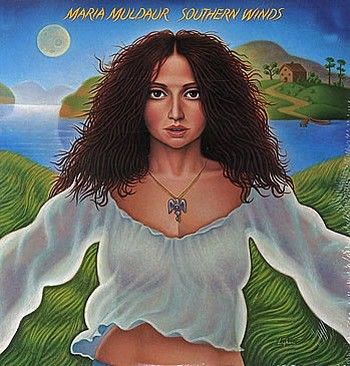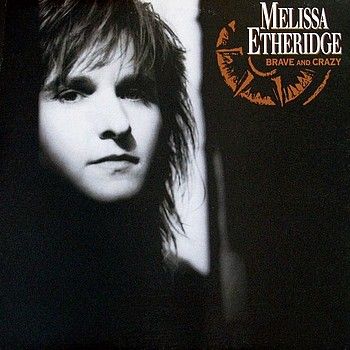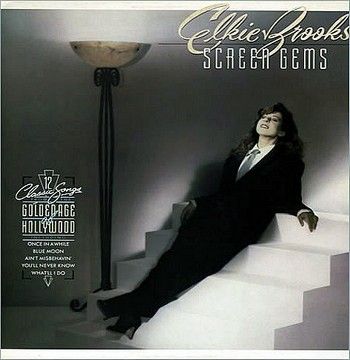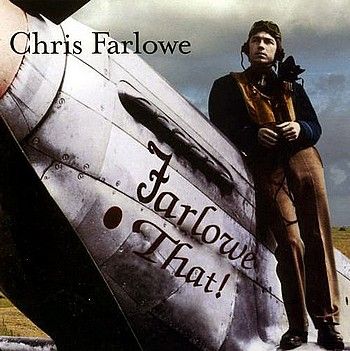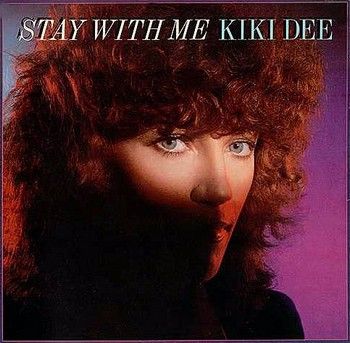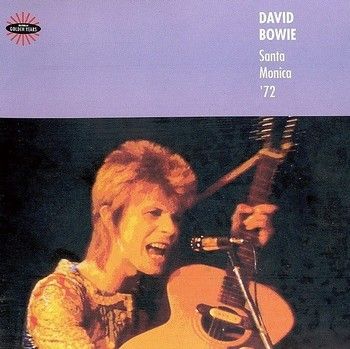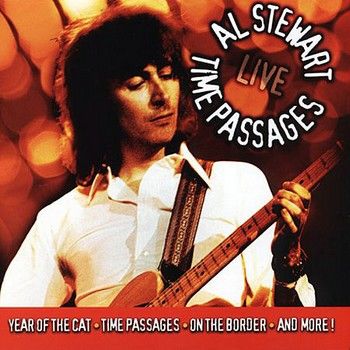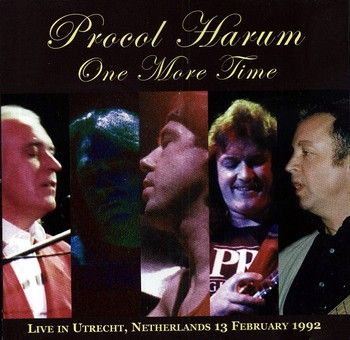
Procol Harum - One More Time (Live In Utrecht 1992) - 2005 - Friday Music
This album was originally released in 1999 on Gary Brooker's own Gazza label. However the version here on the Friday Music label is a remastered version, and is of far better sound quality. The album was recorded live at Muziekcentrum Vredenburg, Utrecht, Netherlands on 13 February 1992, and it's a great concert from this PH 1992 line-up. Procul Harum, despite numerous personnel changes remain a great British rock band. Many of the band's albums are a blend of classically tinged rock and blues rock. Some people still prefer the guitar work of Robin Trower to other PH guitarists. However Geoff Whitehorn's guitar work on this album is more than adequate. Besides Gary Brooker, one of PH's early members, organist Matthew Fisher plays on this concert album, and overall the line-up retain much of the early PH sound. If you are a real Procol Harum fan, you should find something of merit on this album. Up to 2009, Procol Harum were still playing, and concerts are planned for North American venues in June 2010. If you get the chance to see this legendary band, take it. The band's "Live In Concert with the Edmonton Symphony Orchestra" can be found @
PROCOLH/LIC/ESO PH's great "Home" album is @
PROCOLH/HOME and Gary Brooker's "Lead Me To The Water" album is @
GYBRKR/LM2TWSONGS / COMPOSERS1."Bringing Home the Bacon" - Gary Brooker/Keith Reid
2."Shine On Brightly" - Gary Brooker/Keith Reid
3."Homburg" - Gary Brooker/Keith Reid
4."One More Time" - Gary Brooker/M. Fisher/K. Reid
5."Grand Hotel"- Gary Brooker/Keith Reid
6."Man with a Mission" - Gary Brooker/Matt Noble/K. Reid
7."The Devil Came from Kansas" - Gary Brooker/Keith Reid
8."Whisky Train" - Keith Reid/Robin Trower
9."The King of Hearts" - Gary Brooker/Matt Noble/K. Reid
10."A Salty Dog" - Gary Brooker/Keith Reid
11."Whaling Stories" - Gary Brooker/Keith Reid
12."All Our Dreams Are Sold" - Gary Brooker/K. Reid/Robin Trower
13."Repent Walpurgis" - Matthew Fisher
BANDMatthew Fisher - Hammond Organ
Geoff Whitehorn - Lead Guitar
Dave Bronze - Bass Guitar
Mark Brzezicki - Drums
Gary Brooker - Piano, Vocals
ALBUM LINER NOTEProcol Harum, whose classic hit from 1967, A Whiter Shade Of Pale, was recently voted one of the best singles of the 20th century, reformed in 1991. After a 14-year layoff Gary Brooker got together again with Keith Reid, Matthew Fisher and Robin Trower and they made a new album called The Prodigal Stranger for Zoo Records. Among the musicians who helped out on this album were Tim Renwick (guitar), Dave Bronze (bass) and Mark Brzezicki (drums). So when Procol Harum started their Prodigal Stranger Tour in September 1991, it was no surprise that these three pros were added to the line-up, Brzezicki having the unenviable task of following up the highly-rated BJ Wilson, who had tragically died in October 1990, and Renwick replacing Trower who was unable to perform due to previous commitments. The first part of their reunion tour took place in Canada and the USA and kicked off in Toronto on 23 September. The set contained seven songs from the new album. According to Ira Band in the Toronto Sun Gary Brooker had lost none of his vocal charisma and the high point was the passionate A Salty Dog. After this 11-city tour, which finished in Los Angeles Variety Arts Center, Gary Brooker and Matthew Fisher guested on the David Letterman Show. For the next leg of their Prodigal Stranger Tour Tim Renwick was replaced by Geoff Whitehorn, who made his début with the band on Johnny Carson's Tonight Show. On 15 January 1992 the European part of the tour began in the Augsburg Kongresshalle. After Germany the tour went on to Denmark, Norway, Sweden, Poland and Austria. After their return to Germany for one more performance (Frankfurt Music Hall) Procol headed for Utrecht. The Dutch had always had a soft spot for Procol Harum. In The Netherlands A Whiter Shade Of Pale reached the top of the singles charts twice, in June 1967 and July 1972. Homburg achieved that position in November 1967 and A Salty Dog was in the Top 3 in July 1969. It is no surprise that it was in Holland that Gary Brooker scored two solo hits with No More Fear Of Flying and Two Fools In Love. In a recent Dutch poll A Whiter Shade Of Pale was voted the best song of the sixties. Thanks to all the heavy touring, the band was in top shape for their Utrecht performance, nearly the last date of this European tour. It was their first concert in sixteen years in Holland and Gary & co. knew the gig was being recorded. The concert got off to a difficult start when due to technical problems Fisher's organ could not be heard on Conquistador. But after that it was full steam ahead. Just listen to the opening bars of Bringing Home The Bacon. Such dynamics, such power! This was a very well-rehearsed outfit, as is shown in the rousing Shine On Brightly and The Prodigal Stranger's One More Time, which features some inspired playing by Fisher and Whitehorn. Grand Hotel, the title track of their seventh album, proved to be another highlight. After the concert Geoff Whitehorn stated: "This was the best Grand Hotel we did on this tour." Listen to Brzezicki's timekeeping in Man With A Mission and the group vocals in The Devil Came From Kansas. Many consider The King Of Hearts to be the best track from The Prodigal Stranger and this version proves why. A highly-concentrated Brooker leads his troops like a true commander. Not a line missing and shining brightly on A Salty Dog. This Utrecht version was previously released on Castle's 1995 A Whiter Shade Of Pale re-release (as was the superb Repent Walpurgis, starring the genius of Matthew Fisher on organ). Whitehorn's interpretation of Trower's crunching power chords in Whaling Stories shows why rock superstars such as Pete Townshend and Paul Rodgers often ask him to join their touring bands. When listening to the rocky All Our Dreams Are Sold you hear a tight outfit, a great rock band with a lot of guts which is among the best in the universe. Of all the concerts Procol Harum did in the Netherlands since their first in October 1972 at the Concertgebouw in Amsterdam, this definitely was their best yet. Can you think of any other concert where afterwards part of the audience spontaneously started to shake hands with the members of the band? © Frans Steensma http://www.procolharum.com/
ABOUT PROCOL HARUMProcol Harum is arguably the most successful "accidental" group creation -- that is, a band originally assembled to take advantage of the success of a record created in the studio -- in the history of progressive rock. With "A Whiter Shade of Pale" a monster hit right out of the box, the band evolved from a studio ensemble into a successful live act, their music built around an eclectic mix of blues-based rock riffs and grand classical themes. With singer/pianist Gary Brooker and lyricist Keith Reid providing the band's entire repertory, their music evolved in decidedly linear fashion, the only major surprises coming from the periodic lineup changes that added a new instrumental voice to the proceedings. At their most accessible, as on "A Whiter Shade of Pale" and "Conquistador," they were one of the most popular of progressive rock bands, their singles outselling all rivals, and their most ambitious album tracks still have a strong following. Procol Harum's roots and origins are as convoluted as its success -- especially between 1967 and 1973 -- was pronounced. Pianist Gary Brooker (b. May 29, 1945, Southend, Essex, England) had formed a group at school called the Paramounts at age 14, with guitarist Robin Trower (b. Mar. 9, 1945, Southend, Essex) and bassist Chris Copping (b. Aug. 29, 1945 Southend, Essex), with singer Bob Scott and drummer Mick Brownlee. After achieving a certain degree of success at local youth clubs and dances, covering established rock & roll hits, Brooker took over the vocalist spot from the departed Scott, and the group continued working after its members graduated -- by 1962, they were doing formidable (by British standards) covers of American R&B, and got a residency at the Shades Club in Southend. Brownlee exited the band in early 1963 and was replaced by Barry J. (B.J.) Wilson (b. Mar. 18, 1947, Southend, Essex), who auditioned after answering an ad in Melody Maker. Nine months later, in September of 1963, bassist Chris Copping opted out of the professional musicians' corps to attend Leicester University, and he was replaced by Diz Derrick. The following month, the Paramounts demo record, consisting of covers of the Coasters' "Poison Ivy" and Bobby Bland's "Farther on up the Road," got them an audition at EMI. This resulted in their being signed to the Parlophone label, with their producer, Ron Richards, the recording manager best-known for his many years of work with the Hollies. The Paramounts' first single, "Poison Ivy," released in January of 1964, reached number 35 on the British charts. The group also got an important endorsement from the Rolling Stones, with whom they'd worked on the television show Thank Your Lucky Stars, who called the Paramounts their favorite British R&B band. Unfortunately, none of the group's subsequent Parlophone singles over the next 18 months found any chart success, and by mid-'66, the Paramounts had been reduced to serving as a backing band for popsters Sandy Shaw and Chris Andrews. In September of 1966, the Paramounts went their separate ways; Derrick out of the business, Trower and Wilson to gigs with other bands, and, most fortuitously, Gary Brooker decided to develop his career as a songwriter. This led Brooker into a partnership with lyricist Keith Reid (b. Oct. 19, 1945), whom he met through a mutual acquaintance, R&B impresario Guy Stevens. By the spring of 1967, they had a considerable body of songs prepared and began looking for a band to play them. An advertisement in Melody Maker led to the formation of a band initially called the Pinewoods, with Brooker as pianist/singer, Matthew Fisher (b. Mar. 7, 1946, Croydon, Surrey) on organ, Ray Royer (b. Oct. 8, 1945) on guitar, Dave Knights (b. June 28, 1945, London) on bass, and Bobby Harrison (b. June 28, 1943, London) on drums. Their first recording, produced by Denny Cordell, was of a piece of surreal Reid poetry called "A Whiter Shade Of Pale," which Brooker set to music loosely derived from Johann Sebastian Bach's Air on a G String from the Suite No. 3 in D Major. By the time this recording was ready for release, the Pinewoods had been rechristened Procol Harum, a name derived, as alternate stories tell it, either from Stevens' cat's birth certificate, Procol Harun, or the Latin "procul" for "far from these things" (hey, it was the mid-'60s, and either is possible). In early May of 1967, the group performed "A Whiter Shade of Pale" at the Speakeasy Club in London, while Cordell arranged for a release of the single on English Decca (London Records in America), on the companies' Deram label. Ironically, Cordell's one-time clients the Moody Blues were about to break out of a long commercial tail-spin on the very same label with a similar, classically-tinged pair of recordings, "Nights in White Satin" and "Days of Future Passed," and between the two groups and their breakthrough hits, Deram Records would be permanently characterized as a progressive rock imprint. Cordell had also sent a copy of "A Whiter Shade of Pale" to Radio London, one of England's legendary off-shore pirate radio stations (they competed with the staid BBC, which had the official broadcast monopoly, and were infinitely more beloved by the teenagers and most bands), which played the record. Not only was Radio London deluged with listener requests for more plays, but Deram suddenly found itself with orders for a record not scheduled for release for another month -- before May was half over, it was pushed up on the schedule and rushed into shops. Meanwhile, the prototypal Procol Harum made its concert debut in London opening for Jimi Hendrix at the Saville Theater on June 4, 1967. Four days later, "A Whiter Shade of Pale" reached the top of the British charts for the first of a six-week run in the top spot, making Procol Harum only the sixth recording act in the history of British popular music to reach the number one spot on its first release (not even the Beatles did that). The following month, the record reached number five on the American charts, with sales in the United States rising to over a million copies (and six million copies worldwide). All of this seemed to bode well for the band, except for the fact that it had only a single song in its repertory and no real stage act -- literal one-hit wonders. The same month that the record peaked in the United States, Royer and Harrison were sacked and replaced by Brooker's former Paramounts bandmates Robin Trower and B.J. Wilson on guitar and drums, respectively. The "real" Procol Harum band was now in place and a second single, "Homburg," was duly recorded. Reminiscent of "Whiter Shade of Pale" in its tone of dark grandeur, this single, released in October of 1967 on EMI's Regal Zonophone label, got to number six on the British charts. The group's debut album, entitled Procol Harum, managed to reach number 47 in America during October of 1967, based on "A Whiter Shade of Pale" being among its tracks (which included the first version of "Conquistador") -- but a British version of the LP, issued over there without the hit, failed to attract any significant sales. The single "Homburg," however, got no higher than number 34 in America a month later. On March 26, 1968, "A Whiter Shade of Pale" won the International Song of the Year award at the 13th Annual Ivor Novello Awards (sort of the British equivalent of the Grammys). The group's newest single, "Quite Rightly So," however, only reached the number 50 spot in England in April of that year. A new contract for the group was secured with A&M Records in America (they remained on Regal Zonophone in England), and by November, a second album, Shine on Brightly, highlighted by an 18-minute epic entitled "In Held 'Twas I," was finished and in the stores, and rose to number 24 in America but failed to chart in England. The next month, they were playing the Miami Pop Festival in front of 100,000 people, on a bill that included Chuck Berry, Canned Heat, the blues version of Fleetwood Mac, and the Turtles, among others. In March of 1969, David Knights and Matthew Fisher exited the lineup shortly after finishing work on the group's new album, A Salty Dog, preferring management and production to the performing side of the music business. Knights' departure opened the way for bassist Chris Copping to join Procol Harum (thus re-creating the lineup of the Paramounts), playing bass and organ. Another American tour followed the next month, and in June of 1969 A Salty Dog was issued. This record, considered by many to be the original group's best work, combined high-energy blues and classical influences on a grand scale, and returned the band to the U.S. charts at number 32, while the title song ascended the British charts to number 44. The album subsequently reached number 27 in England, the group's first long-player to chart in their own country. Despite the group's moderate sales in England and America, they remained among the more popular progressive rock bands, capable of reaching more middle-brow listeners who didn't have the patience for Emerson, Lake & Palmer or King Crimson. Robin Trower's flashy guitar quickly made him the star of the group, as much as singer/pianist Brooker, and he was considered in the same league with Alvin Lee and any number of late-'60s/early-'70s British blues axemen. Matthew Fisher's stately, cathedral-like organ had been a seminal part of the band's sound, juxtaposed with Trower's blues-based riffing and Reid's unusual, darkly witty lyrics as voiced by Brooker. Following Fisher's departure, the group took on a more straightforward rock sound, but Trower's playing remained a major attraction to the majority of fans. "Whaling Stories" was an example of quintessential Procol Harum, a mix of 19th century oratorio that sounds like it came out of a Victorian-era cathedral, with fiery blues riffs blazing at its center. And being soaked in Reid's dark, eerie, regret-filled lyrics didn't stop "A Salty Dog" from becoming one of the group's most popular songs. It was a year before their next album, Home, was released, in June of 1970, ascending to the American number 34 and the British 49 spot. This marked the end of the group's contract with Regal Zonophone/EMI, and on the release of their next LP in July of 1971, they were now on Chrysalis in England. Broken Barricades reached number 32 in America and 41 in England, but it also marked the departure of Robin Trower. The founding guitarist left that month and subsequently organized his own group, with a sound modeled along lines similar to Jimi Hendrix, which had great success in America throughout the 1970s. Trower's replacement, Dave Ball (b. Mar. 30, 1950), joined the same month, and the lineup expanded by one with the addition of Alan Cartwright on bass, which freed Chris Copping to concentrate full-time on the organ. The group returned to something of the sound it had before Fisher's departure, although Trower was a tough act to follow. It was this version of the band that performed on August 6, 1971 in a concert with the Edmonton Symphony Orchestra and the DaCamera Singers in Edmonton, Alberta, Canada -- the concert was a bold and expansive, richly orchestrated re-consideration of earlier material (though not "A Whiter Shade of Pale") from the group's repertory, and, released as an official live album in 1972, proved to be the group's most successful LP release, peaking at number five and drawing in thousands of new fans. In England, Procol Harum Live: In Concert With the Edmonton Symphony Orchestra only rose to number 48 in May of 1972, but it was competing with a reissue of the group's debut album (retitled A Whiter Shade of Pale, with the single added) paired with A Salty Dog, which outperformed it considerably, reaching number 26. A single lifted from the live record, "Conquistador," redone in a rich and dramatic version, shot to number 16 in America and 22 in England that summer. Soon after, the U.S. distributor of the debut album, London Records, got further play from that record by re-releasing it with a sticker announcing the presence of "the original version of "Conquistador." Amid all of this success, the group's lineup again was thrown into turmoil in September when Dave Ball left Procol Harum to join Long John Baldry's band. He was replaced by Mick Grabham, formerly of the bands Plastic Penny and Cochise. The band's next album, Grand Hotel, was a delightfully melodic and decadent collection (anticipating Bryan Ferry and Roxy Music in some respects) that featured guest backing vocals by Christianne Legrand of the a cappella singing group the Swingle Singers. That record, their first released on Chrysalis in America as well as England, peaked at number 21. Six months later, A&M released the first compilation of the band's material, Best of Procol Harum, which only made it to number 131 on the charts. The group's next two albums, Exotic Birds and Fruit (May 1974) and Procol's Ninth (September 1975), the latter produced by rock & roll songsmiths Jerry Leiber and Mike Stoller, performed moderately well, and "Pandora's Box" from Procol's Ninth became one of their bigger hits in England, rising to number 16. July of 1976 saw a departure and a lateral shift in the group's lineup, as Alan Cartwright left the band and Chris Copping took over on bass, while Pete Solley joined as keyboard player. By this time, the band's string had run out, as everyone seemed to know. A new album, Something Magic, barely scraped the U.S. charts in April of 1977, and the band split up following a final tour and a farewell concert at New York's Academy of Music on May 15, 1977. Only five months later, the band was back together for a one-off performance of "A Whiter Shade of Pale," which had taken on a life of its own separate from the group -- the song was named joint winner (along with "Bohemian Rhapsody") of the Best British Pop Single 1952-1977, at the Britannia Awards to mark Queen Elizabeth II's Silver Jubilee, and the band performed it live at the awards ceremony. Apart from Trower, Gary Brooker was the most successful and visible of all ex-Procol Harum members, releasing three solo albums between 1979 and 1985. Fear of Flying (1979) on Chrysalis, produced by George Martin, attracted the most attention, but Lead Me to the Water (1982) on Mercury had some notable guest artists, including Eric Clapton and Phil Collins, while Echoes in the Night (1985) was co-produced by Brooker's former bandmate Matthew Fisher. During the late '80s, however, Brooker had turned to writing orchestral music, principally ballet material, but this didn't stop him from turning up as a guest at one of the annual Fairport Convention reunions (Procol Harum and Fairport had played some important early gigs together) at Cropredy, Oxfordshire, in August of 1990 to sing "A Whiter Shade of Pale." Still, Procol Harum had faded from the consciousness of the music world by the end of the 1980s. The death of B.J. Wilson in 1990 went largely unreported, to the chagrin of many fans, and it seemed as though the group was a closed book. Then, in August of 1991, Brooker re-formed Procol Harum with Trower, Fisher, Reid, and drummer Mark Brzezicki. An album, Prodigal Stranger, was recorded and released, and an 11-city tour of North America took place in September of 1991. Although this lineup didn't last -- Trower and company, after all, were pushing 50 at the time -- Brooker has kept a new version of Procol Harum together, in the guise of himself, guitarist Geoffrey Whitehorn, keyboardman Don Snow, and Brzezicki on drums, which toured the United States in 1992. © Bruce Eder © 2010 Rovi Corporation. All Rights Reserved http://www.allmusic.com/cg/amg.dll?p=amg&sql=11:0ifixqr5ldhe~T1
ABOUT PROCOL HARUM [ Taken from Encyclopedia of Popular Music, Copyright Muze UK Ltd. 1989 - 2004]
Best known for the timeless "Whiter Shade of Pale," Procol Harum is generally regarded as a progenitor of the '70s prog-rock boom. In the late '60s, the group (led by singer/keyboardist Gary Brooker) combined British pop with classical-influenced motifs and intellectual lyrics (courtesy of non-performing lyricist/band member Keith Reid). By the '70s, the Procol Harum sound became more complex and sophisticated, closer to that of the prog-rockers they'd initially inspired. This soulful progressive rock band was originally formed in Essex, England following the demise of the R&B pop unit, the Paramounts. Gary Brooker (b. 29 May 1945, Hackney, London, England; piano/vocals), Matthew Fisher (b. 7 March 1946, Addiscombe, Croydon, Surrey, England; organ), Bobby Harrison (b. 22 June 1939, East Ham, London, England; drums), Ray Royer (b. 8 October 1945, the Pinewoods, Essex, England; guitar) and Dave Knights (b. David John Knights, 28 June 1945, Islington, London, England; bass) made their debut with the ethereal "A Whiter Shade Of Pale", one of the biggest successes of 1967. The single has now achieved classic status with continuing sales which now run to many millions. The long haunting Bach-influenced introduction takes the listener through a sequence of completely surreal lyrics, which epitomized the "Summer Of Love". "We skipped the light fandango, turned cart-wheels across the floor, I was feeling kind of seasick, the crowd called out for more". It was followed by the impressive Top 10 hit "Homburg". By the time of the hastily thrown together album (only recorded in mono), the band were falling apart. Harrison and Royer departed to be replaced with Brooker's former colleagues B.J. Wilson (b. Barrie James Wilson, 18 March 1947, Edmonton, London, England, d. 8 October 1990, Oregon, USA) and Robin Trower (b. 9 March 1945, Catford, London, England), respectively. The other unofficial member of the band was lyricist Keith Reid (b. 10 October 1946, England), whose penchant for imaginary tales of seafaring appeared on numerous albums. The particularly strong A Salty Dog, with its classic John Player cigarette pack cover, was released to critical acclaim. The title track and "The Devil Came From Kansas" were two of their finest songs. Fisher and Knights departed and the circle was completed when Chris Copping (b. 29 August 1945, Middleton, Lancashire, England; organ/bass) became the last remaining former member of the Paramounts to join. On Broken Barricades, in particular, Trower's Jimi Hendrix-influenced guitar patterns began to give the band a heavier image which was not compatible with Reid's introspective fantasy sagas. This was resolved by Trower's departure, to join Frankie Miller in Jude, and following the recruitment of Dave Ball (b. 30 March 1950, Handsworth, Birmingham, West Midlands, England) and the addition of Alan Cartwright (b. 10 October 1945, England; bass), the band pursued a more symphonic direction. The success of Live In Concert With The Edmonton Symphony Orchestra was unexpected. It marked a surge in popularity, not seen since the early days. The album contained strong versions of "Conquistador" and "A Salty Dog", and was a Top 5, million-selling album in the USA. Further line-up changes ensued with Ball departing and Mick Grabham (b. 22 January 1948, Sunderland, Tyne & Wear, England; ex-Cochise) joining in 1972. This line-up became their most stable and they enjoyed a successful and busy four years during which time they released three albums. Grand Hotel was the most rewarding, although both the following had strong moments. "Nothing But The Truth" and "The Idol" were high points of Exotic Birds And Fruit, while "Pandora's Box" was the jewel in Procol's Ninth, giving them another surprise hit single. By the time Something Magic was released in 1977 the musical climate had dramatically changed and Procol Harum were one of the first casualties of the punk and new wave movement. Having had a successful innings Gary Brooker initiated a farewell tour and Procol Harum quietly disappeared. In August 1991, Brooker, Trower, Fisher and Reid got back together, with Mark Brzezicki (b. 21 June 1957, Slough, Buckinghamshire, England; ex-Big Country) replacing the recently deceased Wilson. Unlike many re-formed "dinosaurs" the result was a well-received album The Prodigal Stranger, which achieved minimal sales. The revamped Procol Harum continued to perform throughout the decade, and in 2002 Brooker, Reid and Fisher returned to the studio to record a new album. Together with Brzezicki, Geoff Whitehorn (guitar) and Matt Pegg (bass), they released the excellent The Well's On Fire.
GARY BROOKER BIO (WIKIPEDIA)
Gary Brooker, MBE, (born 29 May 1945) is an English singer, songwriter, pianist and founder of the rock band Procol Harum. Brooker was appointed Member of the Order of the British Empire in the Queen's Birthday Honours on June 14, 2003 in recognition of his charitable services. Brooker was born Hackney, East London. He grew up in the seaside resort of Southend-on-Sea, Essex, England, as did most of the other founding members of Procol Harum. As a youngster, he learned to play piano, cornet and trombone. Brooker founded The Paramounts in 1962 with his guitarist friend Robin Trower. The band gained respect within the burgeoning 1960s British R 'n' B scene, which yielded The Beatles, The Animals, The Spencer Davis Group, The Rolling Stones, and many others. The Stones, in particular, were Paramounts fans, giving them guest billing on several memorable shows in the early 1960s. In 1966, Brooker founded Procol Harum. "A Whiter Shade of Pale" is the worldwide hit that Procol Harum is best known for, but Brooker's melancholy vocals and emotive, eclectic piano playing were a key part of Procol's musical mix for the entire course of the band's career. In the early years Brooker, Hammond organist Matthew Fisher, and Trower were the guiding musical forces behind the band, but after disparities in style became too much and Fisher and Trower left, Brooker was the clear leader until the band broke up in 1977. Brooker was content to lay low and became the proprietor of the Parrot Inn in Surrey. In 1979, Brooker joined friend and neighbour Eric Clapton's band. With Brooker in the lineup, they released Just One Night, a live recording from Japan and the studio album Another Ticket. Clapton fired the entire band in 1981, but he and Brooker have remained good friends since. Brooker has joined Clapton for several one-off benefit gigs over the years. They still remain neighbours in Ewhurst Surrey UK. Brooker sang lead vocal on the Alan Parsons song "Limelight", on their 1985 album, Stereotomy. A new incarnation of Procol Harum, led by Brooker, and including Fisher for most of the tours from 1991 through 2003, has continued touring the world, celebrating its 40th anniversary in July 2007 with two days of musical revels at St John's Smith Square in London, UK. Brooker also toured with Ringo Starr's All-Starr Band in 1997 and 1999, and he was also a member of Bill Wyman's Rhythm Kings for several years, appearing on three of their albums and touring with the band. In November 2002 he was among musicians and singers participating in the George Harrison tribute concert, Concert for George, at which he took vocals on their version of "Old Brown Shoe". Brooker contributed to Harrison's albums All Things Must Pass, Gone Troppo and Somewhere in England. In April 2005, as the Gary Brooker Ensemble, he played a sell-out charity concert at Guildford Cathedral in aid of the Tsunami appeal, playing a mixture of Procol Harum and solo songs and powerful arrangements of classical and spiritual songs. His guests and supporting artists included Andy Fairweather Low and Paul Jones (ex-Manfred Mann).
MORE ABOUT THE ARTISTSinger/songwriter/keyboardist Gary Brooker is best known as the leader of Procol Harum. Brooker's first group was the Paramounts, all of whose members turned up in the later group. Procol Harum launched in 1967 with their biggest hit, the U.K. number one/U.S. Top Ten "A Whiter Shade of Pale," which featured Brooker singing the lyrics of Keith Reid over an adaptation of a Bach cantata. Procol Harum went on to release ten albums through 1977, then broke up. Brooker launched a solo career with No More Fear of Flying in 1979, followed by Lead Me to the Water (1982), and Echoes in the Night (1985). He also played in Eric Clapton's backup band. Procol Harum reformed for a new album, The Prodigal Stranger, in 1991. © William Ruhlmann, All Music Guide
